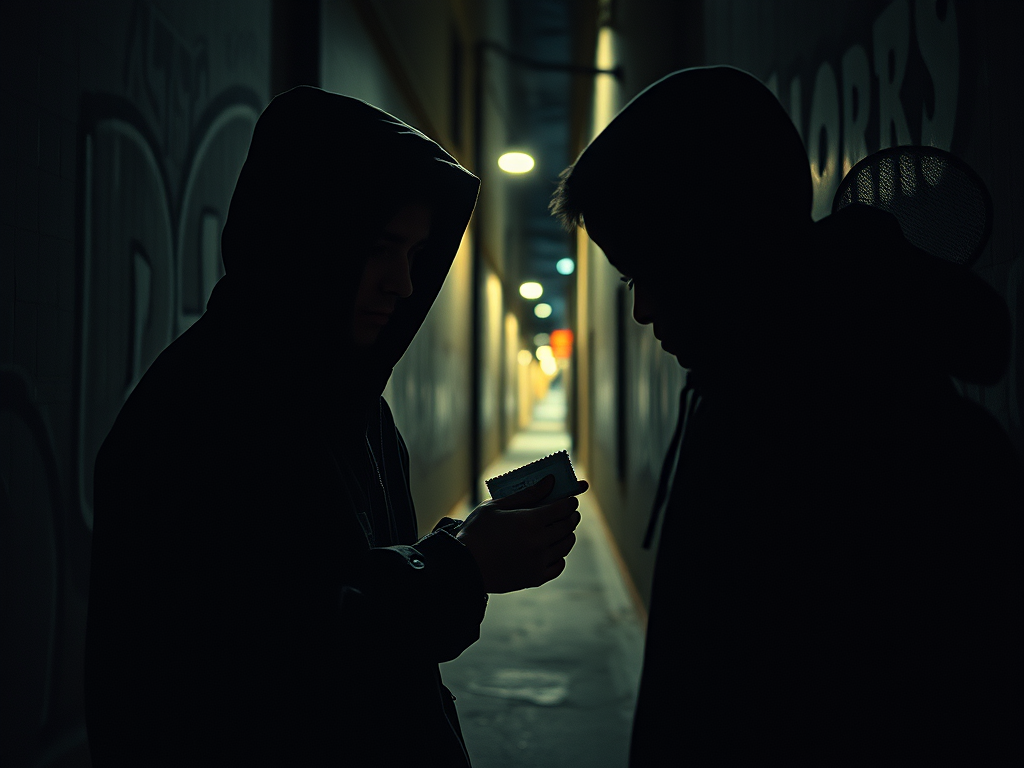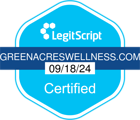
Current Drug Slang Terms in the United States: A Guide for Concerned Parents and Family Members
As parents or loved ones, it’s natural to worry about the well-being of those closest to you. One area of concern that’s grown in recent years is the potential use of illegal drugs, especially among teenagers and young adults. The language surrounding drug use has evolved, making it more difficult to recognize when someone may be involved with drugs. Many drug users and dealers use slang terms, code words, or innocuous-sounding phrases to refer to dangerous substances, making it harder to detect the signs of drug abuse.
As a family member or loved one struggles with addiction, it is very beneficial to be familiar with the terms you will hear or they use. The National Institute on Drug Abuse released this article detailing terminology used in addiction and recovery that are beneficial to those looking to help an alcoholic or addict.
This article aims to shed light on some of the common drug terms used in the United States today, helping parents and loved ones identify potential warning signs of drug use. Whether you’re concerned about your child or your partner, understanding these terms can be the first step in addressing the issue and seeking help. If you discover that someone you love is using drugs, Green Acres Wellness in Alapaha, Georgia, offers compassionate, professional treatment to help individuals break free from addiction.
Common Slang Terms for Drugs
1. Marijuana (Cannabis)
Marijuana remains one of the most commonly used substances in the United States, and as a result, there’s a wide variety of slang terms used to refer to it. These terms can vary by region, social circle, and generation, making it essential to familiarize yourself with the most popular names. Some of the common slang terms for marijuana include:
- Weed
- Grass
- Herb
- Cheeba
- M.J.
- Ganja
- Pot
- Mary Jane
Additionally, there are specific terms for marijuana rolled into cigarettes, often called joints or blunts. Some of these terms include:
- Doobie
- Bone
- Spliff
- Jolt
If you hear your teen or partner frequently using these terms in casual conversation, it may be a red flag that they are using or discussing marijuana. While marijuana is increasingly legalized in some states, recreational use, especially by minors, can still have significant consequences on mental and physical health.
2. Narcotics (Opioids)
Narcotics, particularly opioids like heroin and prescription painkillers, are highly addictive substances that pose a severe risk. Over the past decade, opioid addiction has skyrocketed, becoming one of the most dangerous drug epidemics in the United States. Some common street names for opioids and narcotics include:
- Heroin: Boy, H, Scag, Smack, Junk
- Morphine: Miss Emma, Red Cross
- Opium: Big O, Black Stuff, Hop
For prescription painkillers such as Oxycodone (Percocet) or Hydrocodone (Vicodin), slang terms like Perks or Vikes are often used. If you hear someone using terms like hook, stuff, or knockout drops, they may be referring to narcotics. Opioid addiction can quickly spiral out of control, leading to overdose or death. Recognizing these terms early on could prevent tragedy.
3. Stimulants
Stimulants are drugs that increase alertness, attention, and energy. The most common illegal stimulant is cocaine, but this category also includes prescription drugs like Adderall or illicit methamphetamine. Stimulant abuse is rampant among young people, especially those trying to stay awake for long periods or enhance academic performance. Some of the street names for stimulants include:
- Cocaine: Blow, Coke, Snow, Crack, Rock
- Methamphetamine: Meth, Speed, Ice, Crystal
- Amphetamines: Peppill, Uppers, Dexies, Go Pills
If someone is referring to “snow” or “blow” in conversation, they could be talking about cocaine. Likewise, terms like uppers or speed might point to stimulant use, which can have devastating effects on the heart, brain, and nervous system.
4. Hallucinogens
Hallucinogens are drugs that alter a person’s perception of reality, often leading to vivid hallucinations and distorted thinking. Common hallucinogens include LSD, mushrooms (psilocybin), and PCP. The slang for these drugs tends to be less well-known but is still used among younger crowds and those experimenting with mind-altering substances. Common terms for hallucinogens include:
- LSD: Acid, Tabs, Blotter
- Psilocybin (Mushrooms): Shrooms, Magic Mushrooms
- PCP: Angel Dust, Embalming Fluid
Because these substances can cause severe psychological effects and increase the risk of injury or harm, it’s crucial to intervene early if you suspect hallucinogen use.
5. Club Drugs
Club drugs are popular in party settings, like raves, concerts, or clubs. These drugs are often used to enhance social experiences but carry serious risks, including addiction, overdose, and even death. The most common club drugs are Ecstasy (MDMA), GHB, and Ketamine. Here are some street names for these drugs:
- MDMA: Molly, Ecstasy, X, E
- Ketamine: Special K, K, Cat Valium
- GHB: Liquid X, Liquid Ecstasy
Young people may not see the dangers of club drugs, but repeated use can lead to severe cognitive impairments and other health issues.
Drug User Slang
In addition to terms for the drugs themselves, there are also slang terms for drug users and the methods used to take drugs. Understanding these terms can give you a clearer picture if someone in your life is engaging in substance abuse. Common terms for drug users include:
- Pothead: Refers to someone who frequently smokes marijuana.
- Junkie: A derogatory term for someone addicted to opioids or heroin.
- Cokie: A person addicted to cocaine.
Statistics and Data to Review
The DEA (Drug Enforcement Agency) of the United States released this booklet containing much of the current and previous drug terminology and is a good resource to view other drug slang terms.
How to Help a Loved One Struggling with Drug Use
If you suspect that someone you care about is using drugs, whether it’s your child, partner, or another family member, it’s essential to act quickly. Addiction can escalate rapidly, and early intervention is critical for recovery.
Green Acres Wellness in Alapaha, Georgia, is here to help. Our inpatient rehab facility specializes in treating individuals struggling with drug addiction. We offer a holistic approach to addiction recovery, providing comprehensive care that addresses both the physical and psychological aspects of substance abuse. Here’s how we can help:
1. Medical Detox
We provide a safe, medically supervised detox process to help individuals rid their bodies of harmful substances while managing withdrawal symptoms. This is often the first and most critical step toward recovery.
2. Inpatient Treatment
Our inpatient programs offer round-the-clock care in a peaceful, supportive environment. Clients receive individualized treatment plans that include therapy, counseling, and holistic practices such as mindfulness and physical wellness programs.
3. Aftercare and Support
Recovery doesn’t end when you leave our facility. We offer ongoing support through aftercare programs, ensuring that individuals stay on track as they reintegrate into their everyday lives.
Conclusion
Drug slang terms are ever-evolving, making it challenging for parents and family members to stay informed. However, recognizing these terms and understanding the potential risks associated with drug use can help you take action before it’s too late. If you or someone you love is struggling with substance abuse, Green Acres Wellness offers compassionate, expert care to help individuals on their journey to recovery. Don’t wait—reach out today and take the first step toward a healthier, drug-free future.
By staying aware of drug terminology and seeking help from a trusted rehabilitation center like Green Acres Wellness, you can protect your loved ones from the dangers of addiction and offer them a path toward a better, healthier life.

Contact Us Today
Phone: 229-494-4441
Email: contact@greenacreswellness.com
Location: 15320 US Hwy 129 Alapaha, GA 31622
At Green Acres Wellness, we believe that recovery is possible, no matter how long you’ve struggled with addiction. Reach out to us today to learn more about our programs and begin your journey to recovery. We work with most major insurance providers and are happy to help find your loved one the treatment they need.

